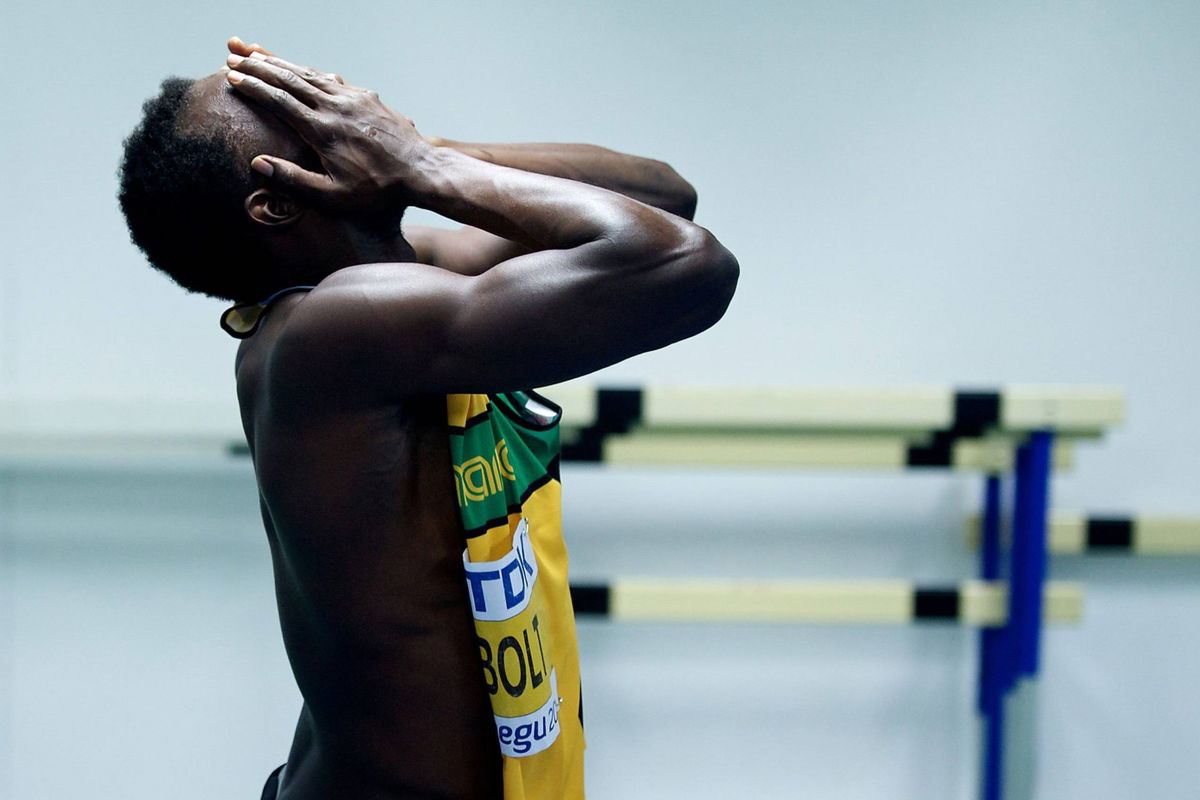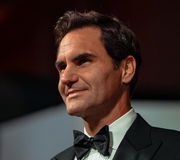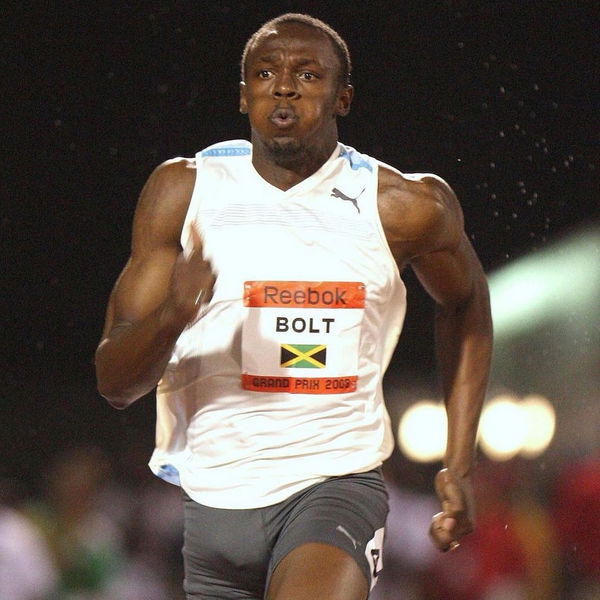
Imago
Bildnummer: 08464302 Datum: 28.08.2011 Copyright: imago/VI Images Usain Bolt (JAMAICA) Day 2 of Tournament IAAF World Championship Daegu 2011 2011/2012 xVIxKarelxDelvoyex/xOrangexPicturesxIVx PUBLICATIONxINxGERxSUIxAUTxHUNxPOLxJPNxONLY 345721; Leichtathletik WM Aus Disqualifikation Fehlstart Ausscheiden Aus Frust Enttäuschung x2x xsk 2011 quer Aufmacher premiumd Image number 08464302 date 28 08 2011 Copyright imago VI Images Usain Bolt Jamaica Day 2 of Tournament IAAF World Championship Daegu 2011 2011 2012 xVIxKarelxDelvoyex PUBLICATIONxINxGERxSUIxAUTxHUNxPOLxJPNxONLY Athletics World Cup out Disqualification False eliminated out Frustration Disappointment x2x xsk 2011 horizontal Highlight premiumd

Imago
Bildnummer: 08464302 Datum: 28.08.2011 Copyright: imago/VI Images Usain Bolt (JAMAICA) Day 2 of Tournament IAAF World Championship Daegu 2011 2011/2012 xVIxKarelxDelvoyex/xOrangexPicturesxIVx PUBLICATIONxINxGERxSUIxAUTxHUNxPOLxJPNxONLY 345721; Leichtathletik WM Aus Disqualifikation Fehlstart Ausscheiden Aus Frust Enttäuschung x2x xsk 2011 quer Aufmacher premiumd Image number 08464302 date 28 08 2011 Copyright imago VI Images Usain Bolt Jamaica Day 2 of Tournament IAAF World Championship Daegu 2011 2011 2012 xVIxKarelxDelvoyex PUBLICATIONxINxGERxSUIxAUTxHUNxPOLxJPNxONLY Athletics World Cup out Disqualification False eliminated out Frustration Disappointment x2x xsk 2011 horizontal Highlight premiumd
Homesickness and stress usually amount to a dismal combo. But, hey, nothing goes in vain when shaping things out. And the unmatchable Usain Bolt, who earned spectacular nine Olympic gold medals in his track and field arena, had gone through that distressing phase too. During his days at the William Knibb Memorial High School, Bolt stood on the Champion League or Champs’s podium as the youngest athlete—from there, the fastest man in the world set to pave his way to become a legend. But with hurdles yet to be overcome.
Watch What’s Trending Now!
As 2001 approached, the 15-year-old Usain Bolt prepared for his next race—CARIFTA—a junior-level competition. He made a good personal record of 48.28 seconds in the 400-meter race and grabbed silver in the 200-meter. When it comes to CARIFTA, it is the most significant event for Jamaica to carter its world-leading fastest athletes like Paulin Davis-Thompson in 1984 and Darrel Brown in 2002 and 2003, who later won the Olympic Gold Medal and inspired the Caribbean youths in the later days. And for Bolt, it was the CARIFTA that flew him away from his home—to Barbados.
ADVERTISEMENT
Usain Bolt found bumps on the road
After the Champs achievement, Usain Bolt was excited about his upcoming junior athletic competition in Barbados. The first time he came outside his home turf, Bolt enjoyed his first holiday in an unfamiliar land. Later, the teenager Bolt drowned in homesickness. He cried for his mother. “It was all adventure. Flying to Barbados was the first time I had left Jamaica and, for a while, it felt like a holiday. Then I got homesick and started to miss Mom. One night, as I tried to sleep, I even began crying because I wanted to go home,” he wrote in his autobiography Faster than Lightning. At that event, Usain Bolt’s consolation stuck with two silver medals in the 200 and 400-meter races. But the potential he unveiled caught the eyes of NAAA. And they changed the game plan for Bolt’s next trip to Hungary.
Entering in Debrecen, Hungary, at the Youth World Championship, Usain Bolt remembers a ‘ nearly freaked out’ experience. He encountered many things on his way from London to Hungary, especially the alien weather, foods, and fizzy drinking water for the first time. The 14-year-old boy, miles away from home, ended up being knocked out in the 200-meter race, which was not quite the fastest athlete on the track earned a reputation for. And what is he to say about the other race he was competing in? “…unlike Champs my best wasn’t good enough and I ran pretty badly in the 400 meter and medley races,” Bolt recollected.
Top Stories
Sean Payton Announces Retirement Plans as Broncos HC Demands Improvement From Bo Nix & Co. Before Playoffs

Greg Biffle’s $4M Worth Prized Possession Still Without a Buyer Leaves NASCAR Fans Heartbroken

LIV Golf Braces for Another Possible Exit in Wake of Brooks Koepka Departure

Biff Poggi All But Confirms Bryce Underwood’s Michigan Future After Announcing His Own Departure

Roger Federer Draws Criticism from Swiss Government Chief for Tourism Boom in Country

NASCAR World Mourns as Former Watkins Glen President Michael Printup Passes Away at 60

ADVERTISEMENT

ADVERTISEMENT
After the Barbados, Bolt’s assessment showed maturity. He set his mind and wrote, “I didn’t expect to land in Hungary and win anything. I was 14 and the World Youth Champs was an under-17s event.” He tried his best and etched a personal best of 21.73 in that 200-meter semi-final. Next year, in 2002, Usain Bolt came to CARIFTA—this time in Nassau and broke the record in the 200 and 400-meter races.
The home where the ordinary child became the Lightning Bolt
Back in his country, Bolt finds solace in the home. His mom and dad, along with the Cockpit Country’s sugar cane fields and lush green thick bushes, where he sat down and vexed after his training on the track and field. Growing up with two siblings, Usain Bolt was a little lazy in his studies. His father was angry whenever he found Bolt sleeping late in the morning of the apprehension that he might fail in the class and the year’s school bills would go in vain. “It was whoop-a** time” for Bolt. But when it comes to his mother, Usain Bolt gets the would-be gold medal champion after his a** whooping, there is always the comfort of her softness. She not only let him sleep late, but after the lazy laying on the bed, she called a cab to send her fastest child to his class on time.
ADVERTISEMENT
As the youngest male to win the gold medal in 2002 in the World’s Junior Championship, Usain Bolt felt chills in his spine. His achievement crowded the throats of the spectators—shouting to him—Lightning Bolt—made him realize that his physical superiority, tactics, and domination on the track could overcome any challenge.
ADVERTISEMENT
ADVERTISEMENT
ADVERTISEMENT

